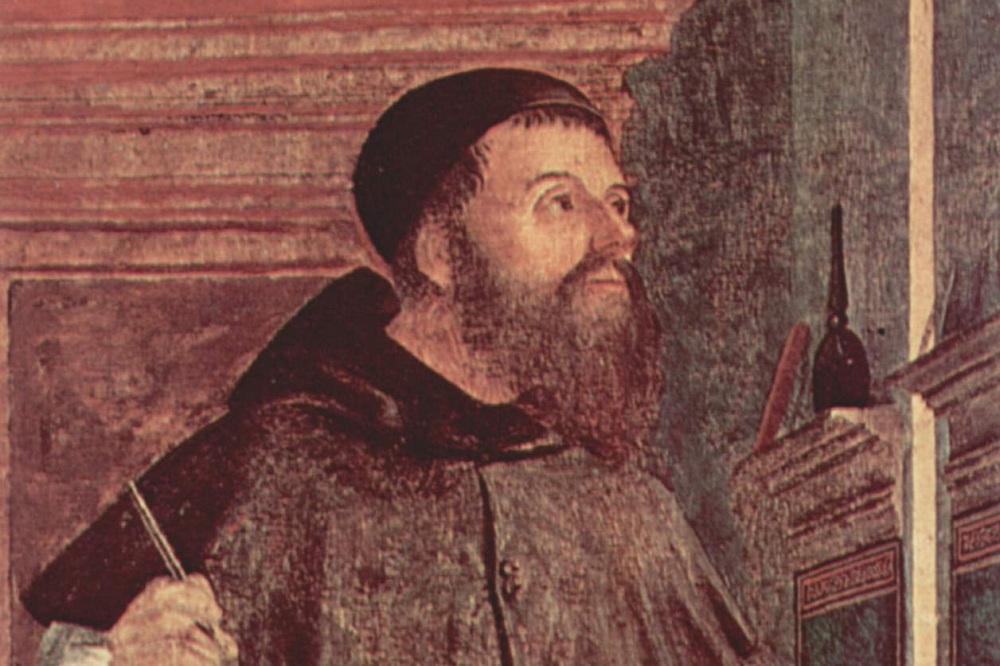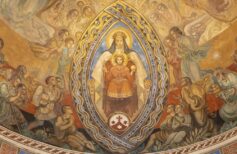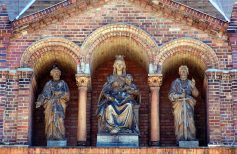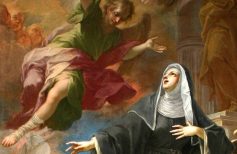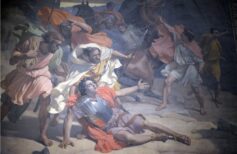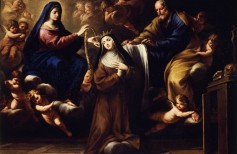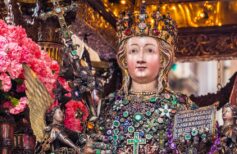Very few men of faith can be compared to Sant’Agostino d’Ippona. He was not only a great theologian and bishop, philosopher and doctor of the Church. Sant’Agostino d’Ippona put his higher sensitivity and genius in the service of Faith as a priest, but also as orator, writer of some of the most beautiful and intimate pages that ecclesiastical literature can recall.
A great man, an elevated mind who discovered Faith after long inner labor: it is perhaps because of the sufferings of this research that his reflections are so deep, and so strenuous his defense of orthodoxy.
Born African, Roman for culture and mentality, Christian for education taught by his mother, Sant’Agostino was a teacher of rhetoric and grammar in Tagaste, Carthage and Rome.
He moved away from Catholicism when very young, and followed for some time the Manicheans, seeking the truth and wisdom he was looking for through rationalism, materialism and dualism they professed.
Only later, and mostly because of the preaching of St. Ambrose, he came to the conclusion that the journey to Jesus was through Church and the Holy Scriptures he had given it.
When he came to this new revelation, he renounced teaching and the marriage, and took the vows. After many trips he settled in Hippo and founded a monastery. He later became bishop. He led a lifetime of asceticism, devoting himself to study, theology, and preaching, as well as charitable works for orphans, poor and infirm. His long journeys led him to be the chair of numerous councils and to stand up as proud defender of faith against heresies.
Sant’Agostino d’Ippona was certainly the first and one of the greatest Christian philosophers. His many works speak of the search of God, but always through self-knowledge, deep reflection on man’s nature, eternity, time, freedom, and evil.
The moral doctrine he spread is a doctrine based on love, a love that from his writings emerges in an almost sensual, profoundly and desperately human way.
A magnificent speaker, a formidable dialect master, he studied the works of his opponents, respecting the diversity of thought. Among his most important works we remember: the Confessions, the City of God, the Speeches, and the Letters.
His image is among the most common statues of saints; His depictions recall his life and the greatness of his intellect throughout the Christian world. Sant’Agostino d’Ippona is still considered as one of the Fathers of Western spirituality: a master of faith and life, shepherd of souls and inspiration for hungry minds looking of knowledge and beauty. The superior beauty which in his mind and works coincided with God.

